Research Area

People and places at Penn: Research (link is external)
From Charles Addams Fine Arts Hall to the Schuylkill River, four researchers share their science and their spaces, including Penn Vet’s Roderick Gagne, assistant professor of wildlife disease ecology.
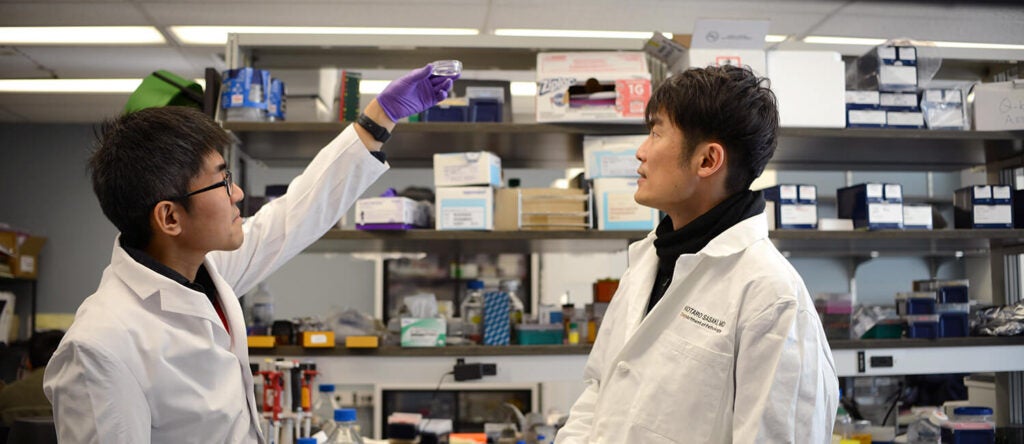
Recreating the adrenal gland in a petri dish (link is external)
A Penn Vet–led team coaxed stem cells to take on the characteristics and functions of a human adrenal gland, progress that could lead to new therapies for adrenal insufficiencies and…
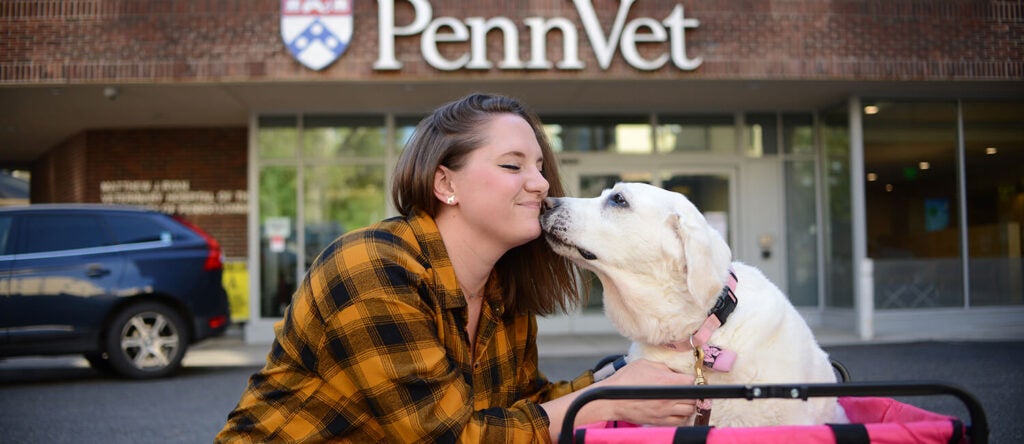
A FLASH of radiation may lead to new cancer care for people and pets alike (link is external)
Led by the Perelman School of Medicine’s Keith Cengel and the School of Veterinary Medicine’s Brian Flesner, a new study is evaluating the safety and efficacy of treating oral cancer…

NIH-funded canine immunotherapy data center charts a path toward transformative therapies (link is external)
With support recently for five more years, Nicola Mason of the School of Veterinary Medicine and Qi Long of the Perelman School of Medicine hope their work leads to new…
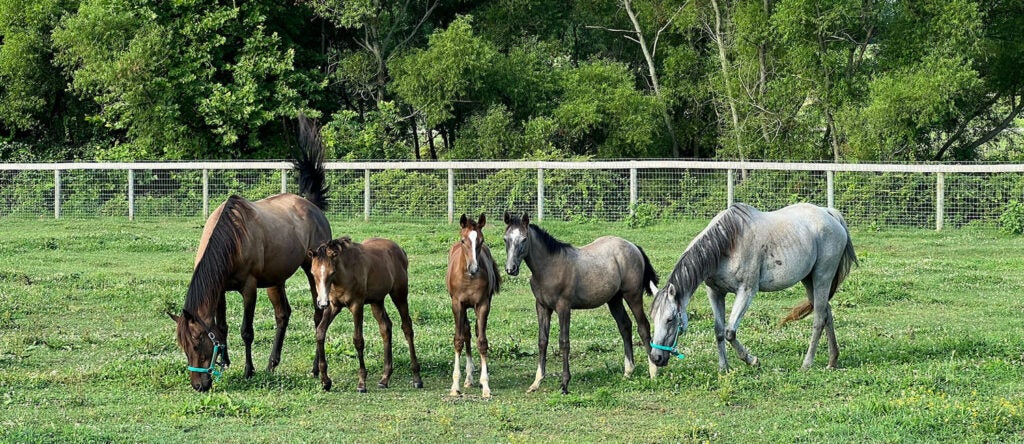
Making ‘true’ equine IVF a reproducible success (link is external)
A new method developed by Katrin Hinrichs and colleagues in the School of Veterinary Medicine resulted in the birth of three healthy foals. The technique opens the door to new…
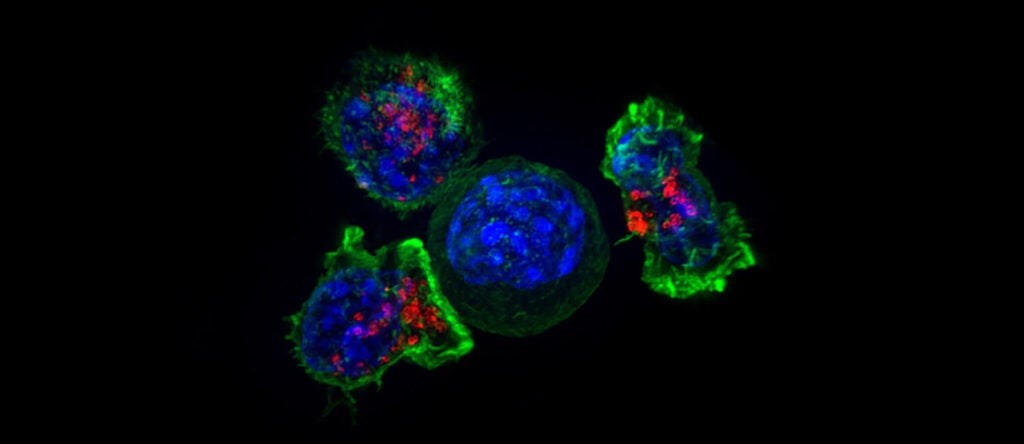
T cells that ‘nibble’ tumors unwittingly help cancer evade the immune response (link is external)
Penn Vet have uncovered a detailed mechanism by which tumors can skirt both the immune system and cancer therapies that leverage its power.

Cooler temps and northern climes associated with increased diabetes diagnoses in dogs (link is external)
Mirroring a finding in humans, diabetes diagnoses in dogs were more common in colder areas of the U.S. and during winter, according to a new study led by Penn Vet…
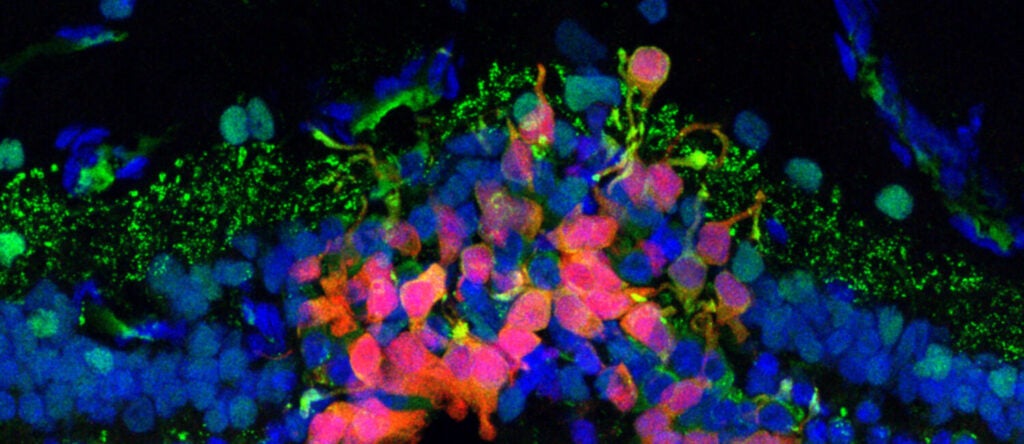
Progress toward a stem cell–based therapy for blindness (link is external)
A multi-institutional effort led by researchers at Penn Vet is taking steps to develop an effective technique to regenerate photoreceptors cells and restore sight in people with vision disorders.
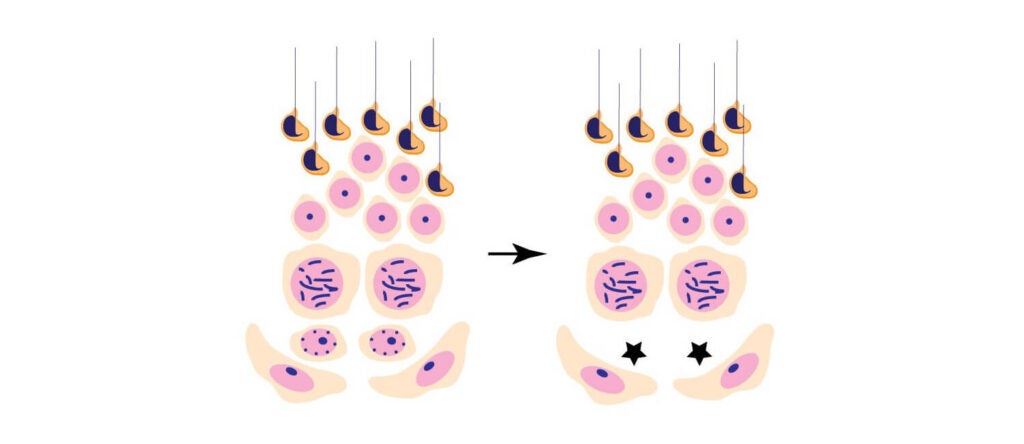
A newly identified stem cell regulator enables lifelong sperm production (link is external)
Research led by Dr. Jeremy Wang has discovered that the enzyme DOT1L, a stem cell renewal factor, is essential for mice to produce sperm throughout their adult lives.
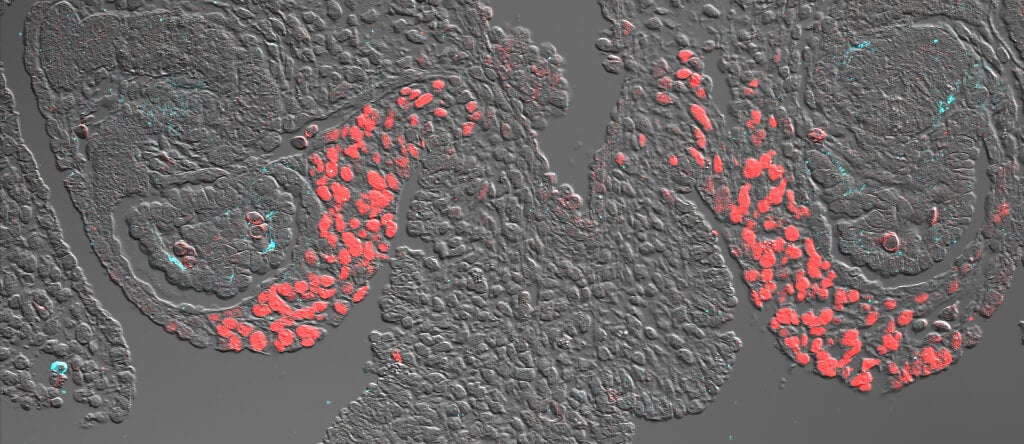
Elucidating the developmental origin of life-sustaining adrenal glands (link is external)
Research led by the School of Veterinary Medicine reveals that adrenal development proceeds differently in humans than it does in mice.
Sort By
- Research Laboratories (1)
- ASMG Laboratory - Microbial Genomics (2)
- Lengner Laboratory (2)
- New Bolton Center PADLS (1)
- Anguera Laboratory (4)
- Wang Laboratory (3)
- Puré Laboratory (1)
- Wolfe Laboratory (1)
- Lennon Mucosal Immunology Laboratory (1)
- Dou Laboratory (2)
- Equine Pharmacology Research Laboratory (1)
- Hunter Laboratory (3)
- Brinster Laboratory of Reproductive Physiology (1)
- Sunyer Laboratory (1)
- Harty Laboratory (3)
- Mason Immunotherapy Research Laboratory (2)
- Scott Laboratory (1)
- Vaughan Laboratory (1)
- Research Institutes (5)
- Research Programs (1)
- Research Centers (2)
